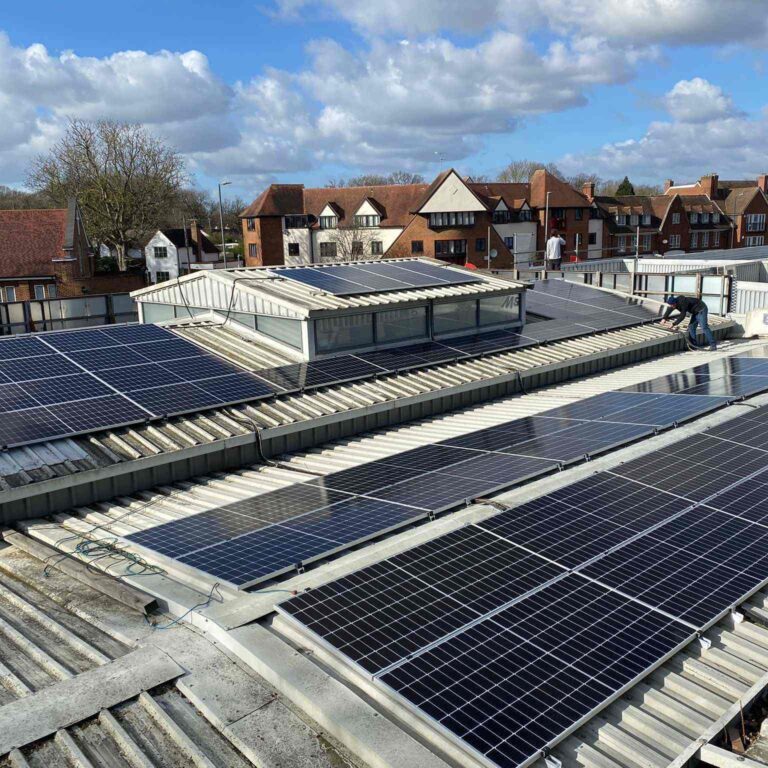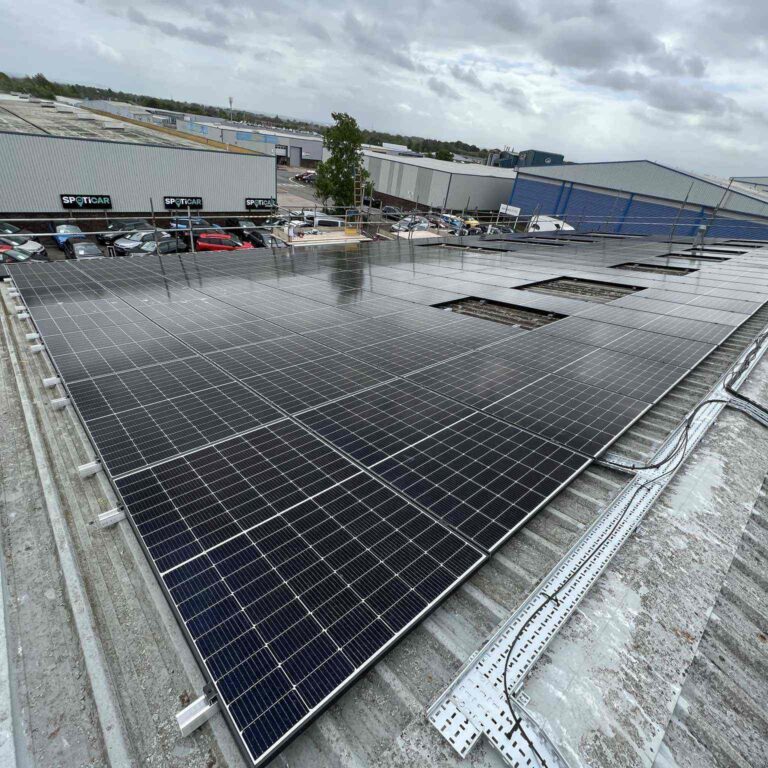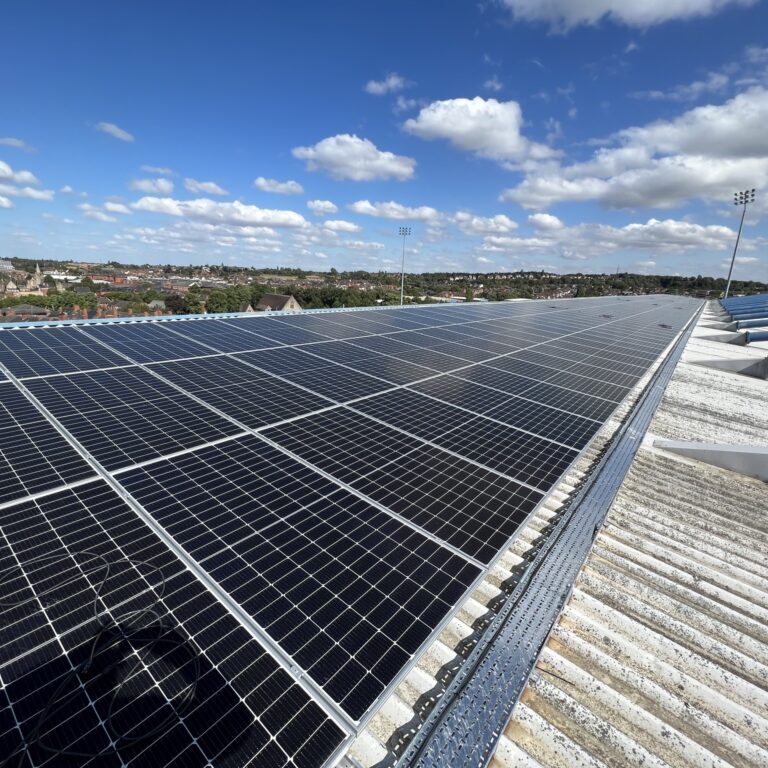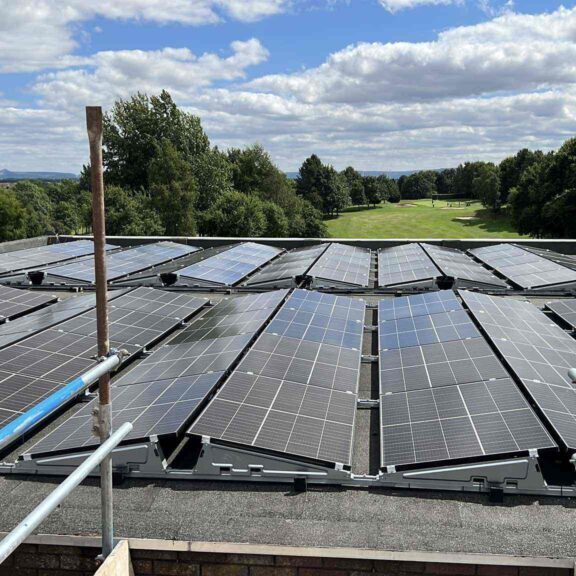As the UK increasingly turns to renewable energy sources, many businesses are considering the switch to solar power. Understanding how solar panels work is crucial for making an informed decision about investing in solar energy. In this article, we’ll explain how do solar panels work, focusing on their benefits for UK companies and the steps involved in harnessing solar power for your business.
Understanding How Do Solar Panels Work
How do solar panels work? At the core of solar energy technology are photovoltaic (PV) cells, which convert sunlight into electricity. The basic principle behind how do solar panels work involves the photovoltaic effect. Here’s a simplified breakdown:
- Photovoltaic Cells: Solar panels are composed of many photovoltaic cells. These cells are typically made from silicon, which is a semiconductor material. When sunlight hits the PV cells, it excites electrons in the silicon, creating an electric current. This is the fundamental process of how do solar panels work.
- Electricity Generation: The electric current generated by the PV cells is direct current (DC). However, most businesses use alternating current (AC). Therefore, how do solar panels work also involves converting DC electricity into AC electricity using an inverter. The inverter is a critical component that ensures the electricity produced can be used by your business or fed back into the grid.
- Energy Storage: In addition to generating electricity, businesses can also install battery storage systems. These batteries store excess electricity produced by the solar panels for use during periods when the sun is not shining. Understanding how do solar panels work includes knowing how energy storage can provide a continuous power supply and enhance your business’s energy resilience.
Benefits of Solar Panels for UK Businesses
Investing in solar panels offers numerous advantages for UK businesses. Understanding how do solar panels work highlights these benefits:
1. Reduced Energy Costs
One of the primary reasons businesses in the UK are turning to solar energy is the potential for reduced energy costs. By generating your own electricity, you can lower your reliance on the grid and reduce your monthly utility bills. The savings achieved by understanding how do solar panels work and implementing a solar energy system can be substantial over time.
2. Sustainability and Environmental Responsibility
How do solar panels work also relates to their role in promoting environmental sustainability. Solar panels produce clean, renewable energy that reduces greenhouse gas emissions and reliance on fossil fuels. By investing in solar energy, your business can demonstrate its commitment to environmental responsibility and support the UK’s carbon reduction targets.
3. Increased Property Value
Another benefit of understanding how do solar panels work is recognizing their impact on property value. Properties with solar installations are often more attractive to potential buyers or tenants due to the associated energy savings and sustainability benefits. This added value can make your property more competitive in the market.
4. Energy Independence
By generating your own electricity, you can achieve greater energy independence. This reduces your vulnerability to fluctuations in energy prices and potential power outages. Understanding how do solar panels work helps you appreciate how this energy independence can provide stability and predictability in your energy costs.
5. Government Incentives
The UK government offers various incentives and financial schemes to support the adoption of renewable energy. These include the Feed-in Tariff (FiT) and the Smart Export Guarantee (SEG), which can provide additional financial benefits for businesses investing in solar panels. Understanding how do solar panels work allows you to better take advantage of these incentives and maximize your return on investment.
Steps to Implement Solar Panels for Your Business
To effectively harness the benefits of solar energy, businesses need to understand the steps involved in installing solar panels. Here’s a guide to the process:
1. Conduct an Energy Audit
Before installing solar panels, conduct an energy audit to assess your business’s energy consumption. Understanding how do solar panels work starts with determining how much energy you use and identifying opportunities for improvement. This will help you design a solar system that meets your specific needs.
2. Evaluate Your Site
Site evaluation is crucial for optimizing the performance of your solar panels. Factors such as roof space, orientation, and shading can impact the efficiency of your solar system. Understanding how do solar panels work includes assessing these factors to ensure that your site is suitable for solar panel installation.
3. Select the Right Solar Technology
There are various types of solar panels available, including monocrystalline, polycrystalline, and thin-film panels. Each type has its own advantages and is suited to different applications. Understanding how do solar panels work involves selecting the technology that best fits your business’s needs, budget, and site conditions.
4. Choose a Reputable Installer
Selecting a qualified solar panel installer is essential for a successful installation. Look for companies with a proven track record, positive customer reviews, and relevant certifications. A reliable installer will ensure that your solar panels are installed correctly and efficiently.
5. Explore Financing Options
The cost of solar panel installation can vary, so explore various financing options to make the investment more manageable. Options include solar loans, leases, and power purchase agreements (PPAs). Understanding how do solar panels work includes evaluating these options to find the best fit for your business’s financial situation.
6. Apply for Permits and Incentives
Ensure that your solar panel installation complies with local regulations and building codes. This may involve obtaining permits and applying for government incentives. Understanding how do solar panels work also involves navigating these requirements to secure the necessary approvals and financial support.
7. Monitor and Maintain Your System
After installation, regularly monitor and maintain your solar panels to ensure optimal performance. Many systems come with monitoring software to track energy production. Routine maintenance by a professional will help keep your system running efficiently and extend its lifespan.
Conclusion
Understanding how do solar panels work is essential for UK businesses considering the switch to solar energy. By exploring the benefits and following the steps to implement a solar system, businesses can enjoy reduced energy costs, enhanced sustainability, and increased property value.
Investing in solar panels not only supports your business’s bottom line but also contributes to environmental stewardship and energy independence. With the right knowledge and planning, your business can successfully harness the power of solar energy and reap its many advantages.
For more information on how solar panels can benefit your business, consult with a reputable solar provider and take the first step towards a more sustainable and cost-effective energy future.



